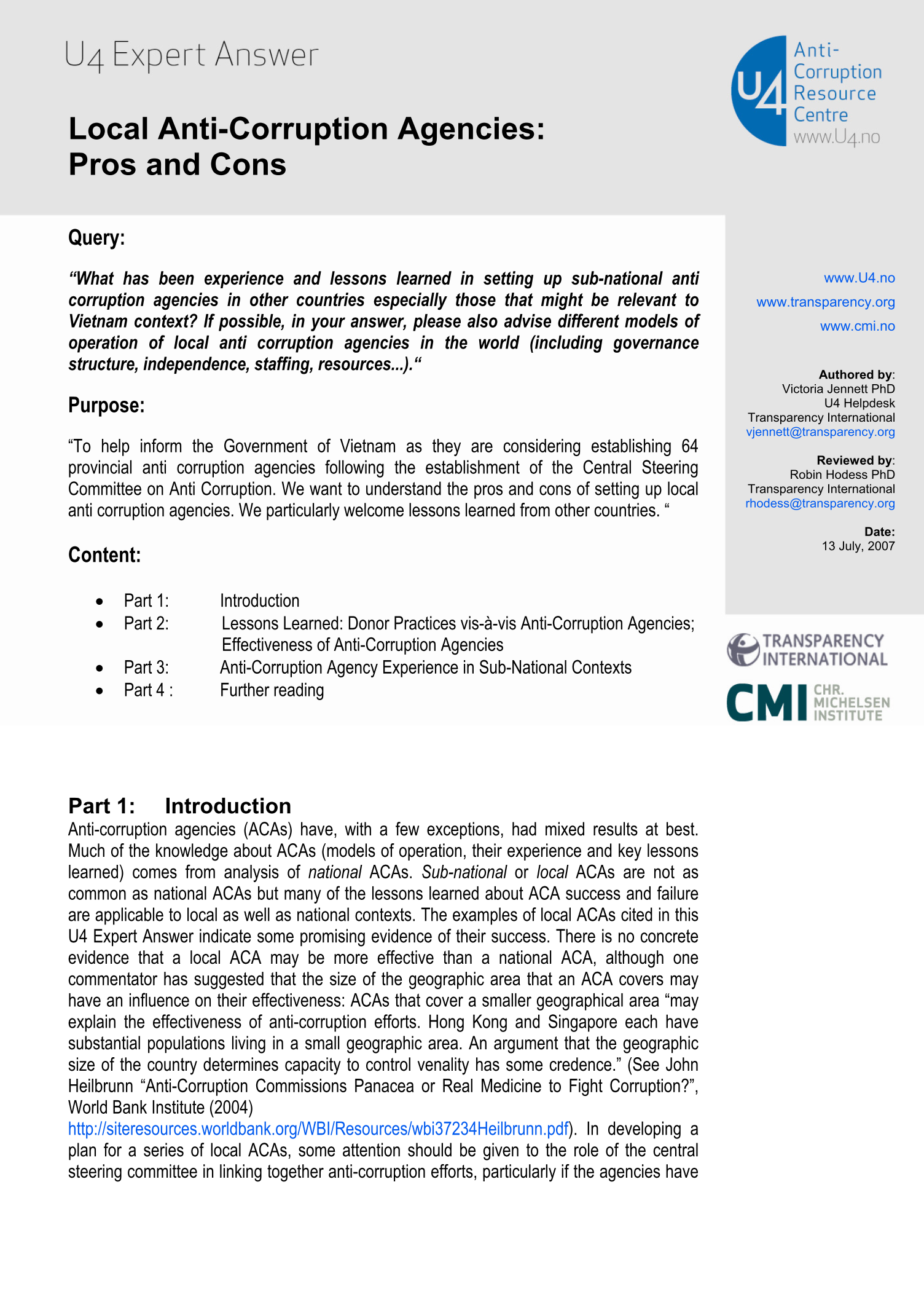U4 Helpdesk Answer
Local anti-corruption agencies: Pros and cons
The experience of setting up Anti-Corruption Agencies (ACAs) has yielded mixed results in the past and is not a general panacea. However, although there is no concrete evidence that local ACAs are more effective than national ACAs, the examples of the independent anti-corruption commissions set up in Miami and New South Wales demonstrate promising signs of success. Whether national or local, the effectiveness of ACAs are influenced by a variety of factors including the domestic demand, the independence of the ACA from the executive, a supportive legal framework, enforcement capabilities, appropriate staffing and resources as well as accompanying training and awareness raising activities.

Cite this publication
Jennett, V. (2007) Local anti-corruption agencies: Pros and cons. Bergen: U4 Anti-Corruption Resource Centre, Chr. Michelsen Institute (U4 Helpdesk Answer Helpdesk 2007)
Disclaimer
All views in this text are the author(s)’, and may differ from the U4 partner agencies’ policies.
This work is licenced under a Creative Commons Attribution-NonCommercial-NoDerivatives 4.0 International licence (CC BY-NC-ND 4.0)
